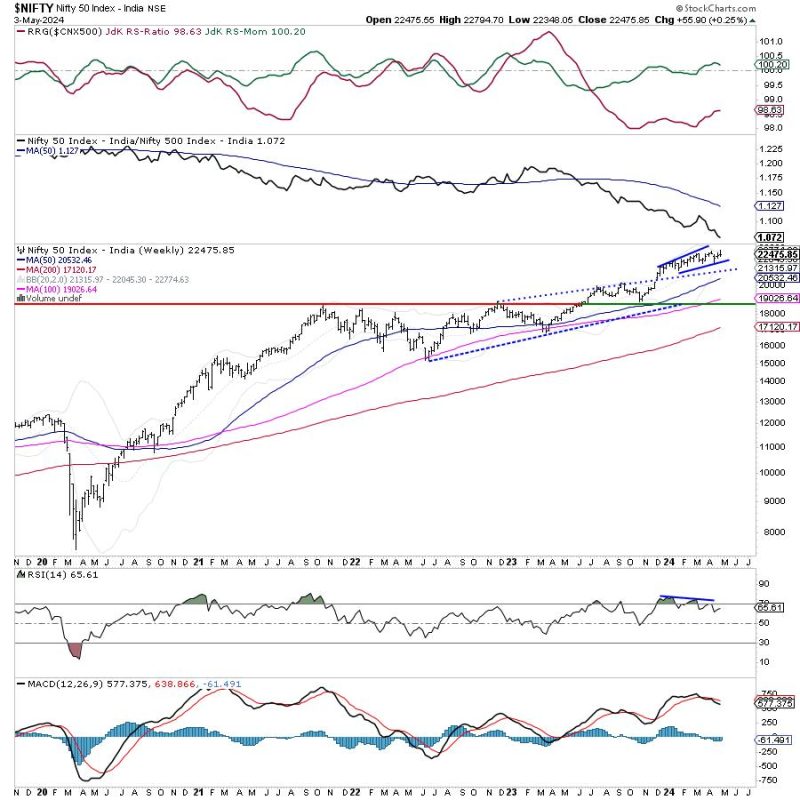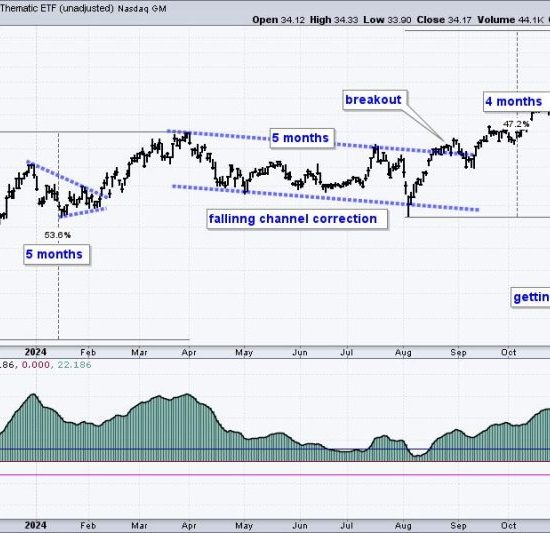In the upcoming trading week, the NIFTY, a benchmark Indian stock market index, remains exposed to disturbances in its primary trend, suggesting that investors should brace for bouts of volatility. Several factors, both domestic and global, are likely to influence the NIFTY’s direction in the week ahead.
The primary trend of NIFTY refers to the overall trajectory of the index for a given period. When the index follows a consistent upward or downward direction for an extended period, it constitutes a primary trend. However, several factors like fiscal policies, global market situations, corporate earnings, and other economic indicators can cause disruptions in this trend.
Currently, the NIFTY is vulnerable to disruption of its primary upward trend due to a confluence of factors. The ongoing monetary policy meetings of Reserve Bank of India (RBI) and the Federal Reserve’s stance on interest rates are expected to have a significant impact on the market sentiment, and subsequently, the NIFTY. If there are any surprises in these meetings, they have the potential to cause a disruption in NIFTY’s primary trend.
Furthermore, the NIFTY also faces vulnerability from the global front. The spread of the Omicron variant of COVID-19 and the subsequent imposition of travel bans and restrictions by several nations could pose significant risks to global growth prospects and in turn, disrupt the upward trajectory of NIFTY.
The Indian corporate earnings season is another crucial factor that may impact the primary trend of NIFTY. Any negative surprises or lower-than-expected growth projections from major Indian corporations could lead to a sell-off in the equity markets and disrupt the primary trend of the index.
Amid these uncertainties, the volatility in the NIFTY is likely to stay in the coming week. The Volatility Index (VIX), often considered a fear gauge for the NIFTY, indicates the expected market volatility. Investors should consider the VIX readings and future option data for a better understanding of market sentiment during these uncertain times.
Analysts suggest that investors should remain cautious in this scenario. Consideration of defensive sectors or hedging strategies can be an effective way to shield the portfolio from sharp swings in the market. It’s also beneficial to maintain a balance of large-cap and mid-cap stocks in the portfolio to ensure steadiness and growth potential. Investors should especially watch out for RBI’s monetary policy decision, the Federal Reserve’s stance on interest rates, incoming corporate earnings reports, and any news about the Omicron variant for their potential impact on the NIFTY.
In conclusion, while the NIFTY has shown great resilience in the current bullish trend, potential disruptions could make the market unpredictable. A cautious approach, combined with due diligence and a thorough understanding of market trends, could help investors navigate the expected volatility in the week ahead.




